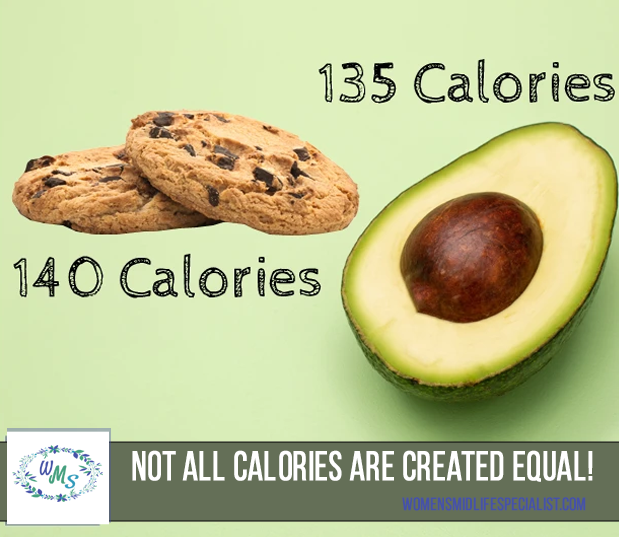NOT All Calories Are Created Equal!

Harvard Medical School and its associated Boston Children's Hospital have been studying this question for over a decade - "Is a Calorie a Calorie" and they published their discovery in the Journal of American Medical Association.

The Conclusion? NOT All Calories Are Created Equal!
Finally DISPROVEN after decades of belief that no matter what you eat...
If you consume 3500 calories MORE than you burn off, you will GAIN 1 Pound.
And if you eat 3500 calories LESS than you burn... you will LOSE 1 pound.
How did Boston Children's Hospital prove this?
Three diets were carefully studied using state-of-the-art methods to measure the participants’ total amount of calories they burned every day, as they followed the 3 diets below for 1 month each.
And here's what they uncovered:
-----------------------------------
**The LOSER DIET**
- A LOW FAT DIET which reduced dietary fat and emphasized whole grain products and a variety of fruits and vegetables and consisting of:
+ 60 percent carbohydrates
+ 20 percent fat
+ 20 percent protein.
This is the diet recommended by the U.S. Government and Heart Association.
The LOW FAT DIET caused the body to burn 300 LESS calories per day! Meaning, the LOW FAT DIET prevented the body from burning calories as quickly as the other 2 diets.
AND... the LOW FAT DIET ALSO caused an Unhealthy Lipid Pattern AND INSULIN RESISTANCE!
------------------------------------
** The Winner AND The Loser**
- A VERY LOW CARBOHYDRATE DIET modeled after the Atkins diet and consisting of:
+ 10 percent carbohydrates
+ 60 percent from fat
+ 30 percent from protein.
The VERY LOW CARBOHYDRATE DIET produced the Greatest Improvements in metabolism, burning the most calories and producing the best weight loss results. BUT there were several serious SIDE EFFECTS!
The VERY LOW CARBOHYDRATE DIET also:
- INCREASED Cortisol levels (which over time can lead to Insulin Resistance and Cardiovascular Disease).
- INCREASED C-reactive protein levels, which is a blood marker for INFLAMMATION! Inflammation increases the risk of heart disease, dementia, and cancer.
-------------------------------------
**The WINNER**
A LOW-GLYCEMIC INDEX DIET made up of minimally processed grains, vegetables, HEALTHY fats, legumes and fruits, consisting of:
+ 40 percent carbohydrates
+ 40 percent from fat
+ 20 percent from protein.
The LOW-GLYCEMIC INDEX DIET had similar benefits of the VERY LOW CARBOHYDRATE DIET - burning almost as many calories as the VERY LOW CARBOHYDRATE DIET.
But there was an additional discovery that made THIS type of diet the Absolute WINNER!
The LOW-GLYCEMIC INDEX DIET burned more calories WITHOUT the negative effects of stress and inflammation that was seen in the VERY LOW CARBOHYDRATE group.
So where do you go from here?
The Glycemic Index ONLY pertains to Carbohydrates. The Glycemic Index is a measurement that is scientifically determined that defines how fast a Carbohydrate breaks down in your body.
The higher the Glycemic Index, the FASTER it breaks down, and the LESS desirable the food is to maintain or lose weight and control blood sugar.
The lower the Glycemic Index, the SLOWER it breaks down, and the MORE desirable the food is to maintain or loser weight and control blood sugar.
If you don't have the "Low Glycemic Index" ENGRAINED in your head yet... IT'S TIME TO DO THAT. So let me help! It's super easy to just think in GENERAL terms - and then you'll be set.
There are 3 general categories in the Glycemic Index:
- HIGH Glycemic: sugar, honey, sweets, breads, pastas, bagels, ripe fruit, dried fruit, fruit juices, white potatoes and starchy vegetables.
- MEDIUM Glycemic: Beans, Lentils, some fruit, more starchy vegetables, and dairy
- LOW Glycemic: MOST raw vegetables like lettuces, tomatoes, onions, carrots, cucumbers, radishes, and on and on - EAT till your heart is content. (Note... carrots do have higher glycemic index however they still fit in the LOW Glycemic category due to something MORE we haven't discussed "Glycemic LOAD.)
THE LOWER THE GLYCEMIC INDEX, THE SLOWER THE FOOD BREAKS DOWN HELPING TO KEEP BLOOD SUGAR AND HORMONES STABLE AFTER MEALS!
So we hope you are now convinced that you really need to give up those High Glycemic Carbs and focus on vegetables more than anything!
When it comes to CARBOHYDRATES that is.
When it comes to FATS... that's a whole different story.
We're on the right path ladies!


Leave a comment